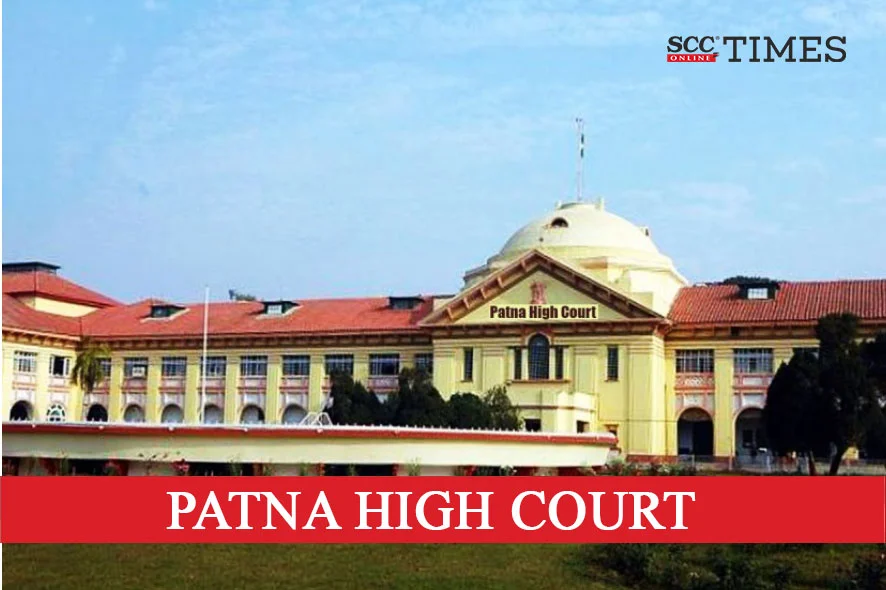Patna High Court: In a petition filed under Section 528 of the Bharatiya Nagarik Suraksha Sanhita, 2023 (‘BNSS’) filed by Nitish Kumar, Chief Minister, Bihar, to quash the complaint case for insulting the National Anthem while inaugurating the World Cup event of ‘Sepak takraw’, the Single Judge Bench of Chandra Shekhar Jha, J., held that the allegations were completely baseless and frivolous and filed to gain cheap popularity in politics by tarnishing the image of Nitish Kumar. Hence, the Court quashed the complaint case and the notice issued thereunder.
Background
On 20-03-2025, while watching the broadcast of the inauguration of the event of the World Cup ‘Sepak Takraw’, the complainant observed that during the singing of the National Anthem, Nitish Kumar was smiling, talking, and disturbing a person standing next to him. He was also seen assuming the posture of ‘Pranaam’.. The complainant considered this conduct during the playing of the National Anthem to be offensive and disrespectful, amounting to an offence punishable under Section 3 of the Prevention of Insult to National Honour Act, 1971 (‘1971 Act’) , which deeply hurt the sentiments of the complainant. Pursuant to the complaint, a case was registered against Nitish Kumar and a notice was issued to him as being the ‘proposed accused’ as per Section 223 of the BNSS.
Analysis
After perusing Section 233 of the BNSS , the Court noted that when a magistrate takes cognizance of an offense, the complainant and any witnesses present must be examined under oath. Exceptions to this requirement include complaints made in writing by a public servant in their official capacity, complaints made by a court, or cases transferred by a magistrate under Section 212 of the BNSS. Further, if the magistrate transferring the case has already examined the complainant and witnesses, the later magistrate need not examine them again. The Court held that the magistrate’s decision to proceed and issue a notice to Nitish Kumar as a ‘proposed accused’, without first examining the complainant under oath or any prosecution witnesses, was unfounded and misconceived. In this regard, the Court referred to Suby Antony v. Judicial First-Class Magistrate-III, 2025 SCC OnLine Ker 532.
The Court observed that while issuing the notice dated 04-04-2025 to Nitish Kumar as the “proposed accused,” his conduct was distinguished from that of his officials. For this reason, Nitish Kumar was, prima facie, not treated as a public servant. Consequently, the Trial Court held that Section 218 of the BNSS was not applicable in the present case. The Court further said that the duty hours of a Chief Minister or, for that purpose, any minister of the Government cannot be limited to their official work time only as they undertake various additional responsibilities including attending public events, meetings and conferences, many of which may be scheduled beyond regular working hours like the inaugural function of World Cup Sepak takraw which Nitish Kumar attended in the capacity of being the Chief Minister of the State. Therefore, the Court noted that Nitish Kumar was acting in the capacity of a public servant and hence the prior sanction protection under Section 218 of the BNSS was to be extended to him.
In this regard, the Courtreferred to G.C. Manjunath v. Seetaram, 2025 SCC OnLine SC 718, wherein the Supreme Court,had observed that the principle governing the necessity of prior sanction stands well crystallized. The pivotal inquiry is whether the impugned act is reasonably connected to the discharge of official duty. If the act is wholly unconnected or manifestly devoid of any nexus to the official functions of the public servant, the requirement of sanction is obviated.
The Court highlighted that the complainant himself has admitted that Nitish Kumar was in ‘Pranaam’ mudra and was smiling at the time of the National Anthem, which showed only respect for the National Anthem and by any prudent imagination could not be construed as an insult to the same.
On the issue of Nitish Kumar disturbing the person standing next to him, the Court said that the non-disclosure of the person’s name in the complaint petition made the allegation completely baseless and frivolous, to gain cheap popularity in politics by tarnishing the image of Nitish Kumar, who has been the Chief Minister of the State since 2005.
The Court referred to Bijoe Emmanuel v. State of Kerala, (1986) 3 SCC 615, wherein the Supreme Court had held that the expulsion of the three children from the school for the reason that because of their conscientiously held religious faith, they do not join the singing of the National Anthem in the morning assembly in school even though they always stood up respectfully for the same was a violation of their fundamental right “to freedom of conscience and freely to profess, practice and propagate religion”.
The Court, for the abovementioned reasons, held that the complaint and the notice issued therein were contrary to established principles of law and ignored the legal provisions as available under Sections 223 and 226 of the BNSS. Hence, the Court quashed the entire complaint proceeding against Nitish Kumar.
[Nitish Kumar v. The State of Bihar, 2025 SCC OnLine Pat 2212, decided on 17-06-2025]
Advocates who appeared in this case :
For the petitioner: P.K. Shahi, Sr. Advocate (AG), Amish Kumar, Sanjiv Kumar, Nausheen Fatma, Atul Anjan, Advocates
For the respondent: Bhanu Pratap Singh, APP, Akash Shankar, Advocate


